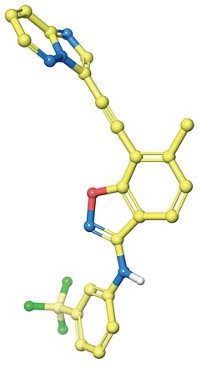Advertisement
Grab your lab coat. Let's get started
Welcome!
Welcome!
Create an account below to get 6 C&EN articles per month, receive newsletters and more - all free.
It seems this is your first time logging in online. Please enter the following information to continue.
As an ACS member you automatically get access to this site. All we need is few more details to create your reading experience.
Not you? Sign in with a different account.
Not you? Sign in with a different account.
ERROR 1
ERROR 1
ERROR 2
ERROR 2
ERROR 2
ERROR 2
ERROR 2
Password and Confirm password must match.
If you have an ACS member number, please enter it here so we can link this account to your membership. (optional)
ERROR 2
ACS values your privacy. By submitting your information, you are gaining access to C&EN and subscribing to our weekly newsletter. We use the information you provide to make your reading experience better, and we will never sell your data to third party members.
Informatics
IBM shifts Watson from drug discovery to the clinic
Computer giant sidesteps reports that it will halt sales to discovery labs
by Rick Mullin
April 26, 2019
| A version of this story appeared in
Volume 97, Issue 17
Responding to reports that it will no longer sell its Watson artificial intelligence system for use in drug discovery, IBM says it is “not discontinuing our Watson for Drug Discovery offering” and that it will continue to support current users. At the same time, IBM says, “We are focusing our resources within Watson Health to double down on the adjacent field of clinical development.”
The initial report of changes at IBM was published in the life sciences newsletter Stat and attributed to “a person familiar with the company’s internal decision-making.”
IBM has struggled to adapt its Watson computing system to drug discovery. It had to halt a marquee installation of Watson for Oncology at the University of Texas MD Anderson Cancer Center in 2016. Both MD Anderson and IBM said they scrapped the project because of procurement improprieties. AI has made only small advances in drug discovery generally, and industry watchers were not surprised to hear IBM is backing away from the field.
“I’m surprised it lasted this long,” says Michael Elliott, CEO of the science informatics consulting firm Atrium Research, noting that AI is limited by the quality and accessibility of data it works with. “Data at pharma is often trapped in Excel or PowerPoint and lacks consistency in formats and quality across domains.”
Drug companies continue to develop AI for research, however. The Machine Learning for Pharmaceutical Discovery and Synthesis Consortium at the Massachusetts Institute of Technology, for example, is working on tools for molecular generation.
And IBM notes that Watson for Drug Discovery users include Baylor College of Medicine, the Barrows Neurological Institute, and Toronto Western Hospital.





Join the conversation
Contact the reporter
Submit a Letter to the Editor for publication
Engage with us on Twitter